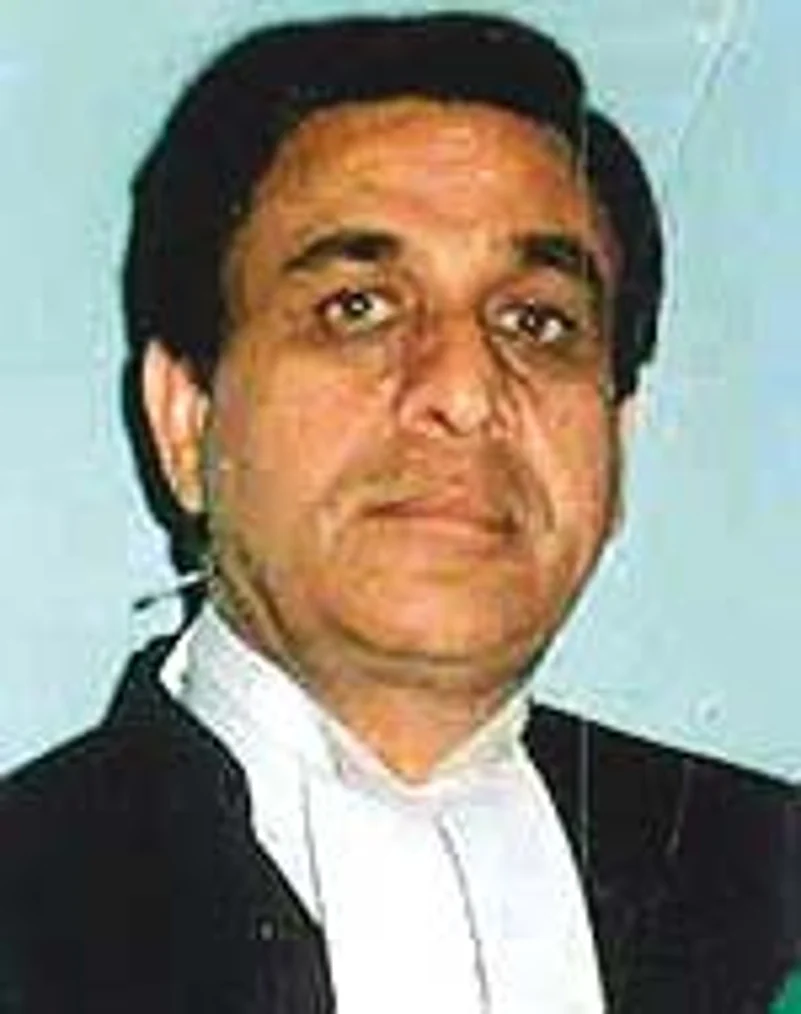Should a sitting judge of a high court entertain a case in which his son is appearing as the counsel? Certainly not if one were to follow the 'Values of Judicial Life' as adopted by a full bench of the Supreme Court on May 7, 1997, and recognised as the "minimum requirement" to uphold the dignity of the Indian judiciary.
But they were clearly forgotten on July 7, 2006, when Justice Jagdish Bhalla, a senior judge of the Lucknow bench of the Allahabad high court, constituted a double bench to hear a petition filed by his son Aarohi Bhalla. Not just that, the case was also heard at night, after dinner, and directions passed without any notices being issued to the respondents—the Uttar Pradesh government.
The case pertained to the acquiring of 2100.58 acres of land by M/s Reliance Energy Generation Limited from the UP government to set up a power plant. On July 6, former premier V.P. Singh and Jan Morcha leader Raj Babbar announced a massive rally to oppose the coming up of the plant. Singh demanded the acquired agricultural land be returned to the farmers and also alleged that they had been "inadequately compensated" by the state government.
Worried at the fallout of the protests, the petitioners approached the Ghaziabad courts seeking state government protection. However, the Ghaziabad courts were closed on July 7 due to the death of a lawyer. Ideally the petitioners should have approached the Allahabad high court, but due to the absence of any direct flights from Delhi, counsel Bhalla chose to file a writ petition in the Lucknow bench of the Allahabad high court.
The case was a routine one, except for a small twist. The senior judge heading the Lucknow bench, Justice Jagdish Bhalla, happened to be the father of the 'counsel-on-record', Aarohi Bhalla. The matter would have gone unnoticed had former judges and senior advocates not brought it to the notice of the Chief Justice of India, Y.K. Sabharwal.

These judges and lawyers expressed shock at the senior Bhalla's judicial conduct. Former CJI Jagdish Sharan Verma clearly points out that the issue of a judge being associated with a case in which his or her close relative is involved is a matter of serious concern. "I cannot comment on any specific case, but justice must not merely be done, it must also be seen to be done. Under such circumstances, the incumbent Chief Justice of India must look into the matter and address the question of propriety," Justice Verma told Outlook.
In fact, the 'Restatement of Values of Judicial Life', accepted as the code of conduct for the judiciary, was adopted by the full bench of the Supreme Court under Justice Verma's charge. Three clauses within this code clearly forbid sitting judges from entertaining a matter in which their close kin is involved:
- Clause 3 states that close association with individual members of the bar must be eschewed;
- Clause 4 states that a judge shall not permit any member of his immediate family, such as spouse, son, daughter, son-in-law or daughter-in-law or any other close relative, if a member of the Bar, to appear before him or even be associated in any manner with a case to be dealt with by him; and
- Clause 7 states that a judge shall not hear and decide in a matter in which a member of his family, a close relation or a friend is concerned.


























